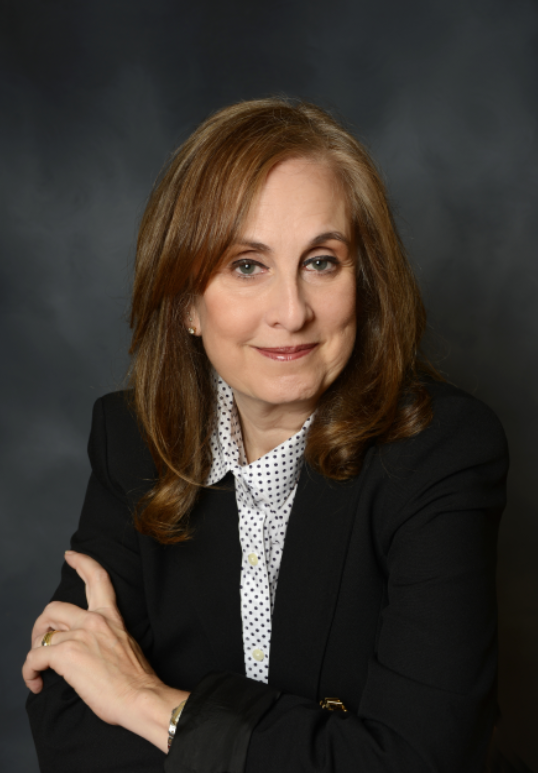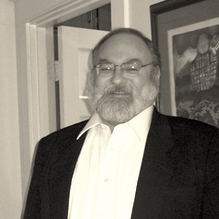 Washing the Dead in a Taharah
Washing the Dead in a Taharah Ruth was dying.
That is why we had to learn to do Taharah, the Jewish ritual that prepares the body for burial.
About ten of us would gather on the couch and chairs in my living room and pay attention to the Rabbi who explained each sacred step.
“There should be no excessive talking. If you must speak, address the Metah.” The Metah is the deceased, the body that was the vessel that held something that becomes ephemeral once it stops working. Is it a soul, a life? Someone had been housed in that body no matter what we each believe.
“You can simply explain to her what you are doing, be careful with her.”
Each step includes various prayers. The washing must be done in particular ways. When the body is clean, the blood wiped away from the pick lines and the catheters, the finger nails cleaned, polish removed, the hair cleaned and brushed, then we dress her.
We ease her into the white linen pants without openings at the feet that will no longer be used for walking. The top get slipped over her head and covers her arms.
There is an apron and a bonnet with lace edges. As the Rabbi displays the shroud I think it looks Amish. In Hebrew this clothing is called Tachrichim. The local Jewish funeral home, a Chevrah Kadisha (a sacred society), has generously donated it to our community.
At last she will be cleansed and purified and blessed. Then we can place another sheet over her that covers her face.
As we complete each step we will cover our eyes with goggles and wear surgical gloves, changing them often if we touch whatever is considered not sacred, not cleansed.
We learn how to make the “Shin” knots (knots that resemble the Hebrew letter ‘shin’, the initial letter of a name for G-d). We close each article of her death outfit with a knot that looks like the Hebrew letter Shin. This stands for Shaddai, one of the names for G-d.
And then together, we will lift her and place her in the plain pine casket that will disintegrate completely over time. It’s really true, I thought to myself as the Rabbi spoke. Ashes to ashes, dust to dust.
I wasn’t there when Ruth died. Months later, the Rabbi called on me when a woman who did not belong to a synagogue needed a Taharah. Several women from various Northern California congregations volunteered.
“This will be an opportunity for you to continue to learn,” the Rabbi said. “I will go also. I’ll be with you.”
Even though I was scared I agreed to go. We drove together to the green cemetery in Marin County.
“Cover your head with a scarf to protect your hair,” the woman who was leading the ritual instructed me. I wore comfortable shoes that would protect my feet and would not be used for any other purpose. They were clean and new, not soiled.
Still feeling scared, I stood to the side as the more experienced women unzipped the plastic bag the Metah had been put in.
She was dead. I had been present at other deaths before but this was different. I was part of the team who would be preparing her for her last journey.
It took me a while to get to know her, to imagine who she had been in life. For her age, late seventies, she was in good shape. Her nails were covered in chipped red polish that we had to remove gently.
“She had been a lady,” the inner dialog with myself continued as we moved along quietly.
We carefully cleaned every part of her. With each progressive step I felt closer and closer to her. When I brushed her hair I told her how nice and thick it was, remarking on how pretty she looked in her new white shroud. As I took a warm wet cloth and wiped her arm, the Rabbi chanted prayers and I imagined who the women might be who would be doing this for me when I died.
That is the gift of the Chevrah Kadisha. It is a secret society because the act of Taharah is something that is invaluable and can never be repaid. The payment is that the ritual will continue and our own bodies will be held in love and respect when our time to leave life as we know it arrives.
At last she was prepared. We had completed each step according to the instructions that had been posted on a large laminated sheet of paper on the wall of the room she was in. This was the room where the refrigeration had stored her and where we had performed the assigned rituals on her body as she lay on the metal table and we lovingly cared for her. Soil from Israel was sprinkled on her and we placed shards of pottery on her eyes to symbolize that the “vessel of her soul was now broken.” 1.
That’s when I saw her. With an illuminated face, her thick grey hair was coiffed and she had on makeup as though she was dressed for an elegant event. She looked down on herself beneficently, with a warm smile on her face. It seemed she was expressing gratitude. I was not scared at that moment and she was at peace.
- classroom.synonym.com Nancy Kalikow Maxwell
Gloria Saltzman is a psychotherapist in private practice in San Francisco. In addition she provides grief counseling to mourners and is on staff at Sinai Memorial Chapel, a Chevrah Kadisha in the Bay Area. She has an MFA from USF where she majored in poetry and creative nonfiction. She has been published in PHAROS, a literary journal in Paris, Tikkun’s on line magazine, and the SF Chronicle. Her writing will be included in the upcoming Write on Mamas Anthology, “She’s Got This”.

___________
Gamliel Café
Gamliel Students are invited to a free informal online monthly session, held monthly. On the third THURSDAY of each month, different person(s) will offer a short teaching or share some thoughts on a topic of interest to them, and those who are online will have a chance to respond, share their own stories and information, and build our Gamliel Institute community connections. This initiative is being headed up by Rena Boroditsky and Rick Light. You should receive email reminders monthly. The next scheduled session of the Gamliel Café is April 19th, featuring Abigail Salisbury.
If you are interested in teaching a session, you can contact us at rboroditsky@jewisgh-funerals.org, rlight@jewish-funerals.org, or info@jewish-funerals.org.
____________________
Taste of Gamliel Series
Register now for our 2018 series, Your’re Gonna Miss Me When I’m Gone: Jewish Practices of Remembrance. The series features Rabbi Stuart Kelman, Rabbi SaraLeya Schley, Maharat Victoria Sutton, Rabbi Yonatan Cohen, and Jacob Klein of Keshet. They will be discussing topics such as Sephardic Customs, Understanding the Mourners Kaddish, an Alternative Yizkor Service, Disenfranchised Grief, and Trans Day of Remembrance, all relating to remembrance and memory.
The series began Sunday evening, February 4, and will continue on Sunday evenings, generally one session per month, at 8 PM Eastern time and 5 PM Pacific time. Each session runs approximately 90 minutes. Upcoming sessions are:
April 29: Disengranchised Grief – Rabbi Yonatan Cohen
May 27: An Alternative Yizkor Service – Rabbi SaraLeya Schley
If you cannot attend a session, no worries! They are recorded and made available to those registered.
Registration for Taste of Gamliel is mandatory to access the sessions. The sessions are free, but there is a suggested minimum donation of $36 for the entire series to help us defray the out of pocket costs.
Those registered will be sent the information on how to connect to the sessions. To register, click here: register.
_______________
Gamliel Continuing Education Courses
Gamliel students should be on the lookout for information on a series of Gamliel Continuing Education Courses, advanced sessions focusing in on different topics. These will be in groups of three ninety minute sessions (three consecutive Wednesdays) offered twice yearly, with different topics addressed in each series. The goal is to look at these topics in more depth than possible during the core courses. The first course took place in Fall 2017, focusing on Psalms.
The next course will be April 25, May 2nd and May 9th, and will look at death as seen in the Zohar, taught by Beth Huppin.
Registration is required, and there will be a tuition charge of $72 for the three session series. Contact us for information, by email info@jewish-funerals.org, or call 410-733-3700, or simply register online at www.jewish-funerals.org/gamreg/.
_____________________
16th annual Kavod v’Nichum Chevrah Kadisha and Jewish Cemetery Conference and Gamliel Day of Learning
Mark your calendar and hold the dates! June 3-5, 2018, in the Washington D.C. area.
Click here to register
Location – The conference will be at Congregation Beth El in Bethesda, Maryland (just north of Washington, DC)
Dates and Times – The main part of the conference will be from noon on Sunday June 3 to 1pm on Tuesday June 5, 2018. There will be tours and hands-on workshops on Sunday morning.
Additionally, the Gamliel Day of Learning will be from Tuesday at 2pm through Wednesday at noon. You will not want to miss this – we have arranged for Erica Brown to teach at this event on Tuesday, and Aaron Alexander and Lauren Holtzblatt on Wednesday – this day of learning is going to be fantastic!
Who Should Attend? Consider attending the conference if you:
- are interested in the fields of community organizing, consumer advocacy, bikkur cholim, chaplaincy,rabbinic texts, thanatology, hospice care, grief therapy, funeral direction, cemetery management, and legacy planning
- recognize the importance of liturgy and ritual in ensuring that the spiritual dimension of the end-of-life continuum is appreciated, and that the work of the Chevrah Kadisha is done with full regard for the respect and dignity of all involved
- want to learn more about the entire end-of-life continuum – dealing with life-threatening illness, legacy and preparation of ethical wills, preparing for death and at the time of death, care for the body- taharahand shmirah, care for relatives and friends, funeral and burial, mourning, grieving, remembering and providing comfort – with underlying themes of communal obligation, care for the poor and elderly, consumer protection, and Jewish continuity.
- believe it is essential to shift the culture surrounding continuum-of-life issues in the Jewish community – from an attitude of denial and neglect around death, to a more open attitude towards death that includes increasing awareness, acceptance, and healthy integration into family and community life.
- want to participate in the development of a strong Jewish corps of professionals and volunteers to become communal leaders who work to inspire, support, organize, teach, and advocate for the full range of Chevrah Kadisha work in synagogues and communities.
Workshop Leaders – If you are interested, or know someone else who might be interested in leading a workshop, suggest it to us with a short paragraph of explanation – send to info@Jewish-funerals.org
Registration – Registration is open now.
Organization Pricing – is available if three or more members of an organization are attending the whole conference and the organization has paid membership dues of $180. You can cover the cost of organizational membership right on the registration form. Even if you don’t have three members attending the conference, we appreciate your organization’s support as a member.
Books – This year you can pre-order and pre-pay for books right on the registration form.
Exhibits – If you, or someone you know, would like to exhibit at the conference, let us know by sending us an email – info@Jewish-funerals.org
Meals – In addition to Sunday brunch, we provide six supervised Kosher meals as part of the conference registration. Please let us know if you have allergies or special dietary needs.
Flights – Many cities have direct flights to National (DCA), Baltimore Washington (BWI) and Dulles (IAD).
Ground Transport – Direct connections to the Metro are available from National Airport. We’ll update the website mid-January with additional ground transportation options.
Hotel – We have negotiated a great hotel rate at American Inn. Contact them at 301-656-9300 and give them group booking code KNG or email or phone our hotel contact Minoli, Minoli.Muhandiramge@baywoodhotels.com who is at extension 111. Our group rate is $139 plus 13% tax per room per night for singles or doubles. There are a limited number of doubles.
Home Hospitality – will be available. Let us know if you are interested.
Shabbat – If you would like to be connected to a family for Shabbat dinner, home hospitality, and synagogue services, let us know.
Refunds: 90% of the registration fee will be refunded if you cancel in writing before May 1; 80% before May 15; 50% May 15 or later, only if you have a really good excuse!
_____________________
DONATIONS
Donations are always needed and most welcome to support the work of Kavod v’Nichum and the Gamliel Institute, helping us to bring you the annual conference, offer community trainings, provide scholarships to students, refurbish and update course materials, expand our teaching, support programs such as Taste of Gamliel, the Gamliel Café, and the Gamliel Continuing Education courses, provide and add to online resources, encourage and support communities in establishing, training, and improving their Chevrah Kadisha, and assist with many other programs and activities.
You can donate online at http://jewish-funerals.org/gamliel-institute-financial-support or by snail mail to: either Kavod v’Nichum, or to The Gamliel Institute, both c/o David Zinner, Executive Director, Kavod v’Nichum, 8112 Sea Water Path, Columbia, MD 21045. Kavod v’Nichum [and the Gamliel Institute] is a recognized and registered 501(c)(3) organization, and donations may be tax-deductible to the full extent provided by law. Call 410-733-3700 if you have any questions or want to know more about supporting Kavod v’Nichum or the Gamliel Institute.
You can also become a member (Individual or Group) of Kavod v’Nichum to help support our work. Click here (http://www.jewish-funerals.org/money/).
___________
SUBMISSIONS WELCOME
If you have an idea for an entry you would like to submit it to this blog, please be in touch. Email J.blair@jewish-funerals.org. We are always interested in original unpublished materials that would be of interest to our readers, relating to the broad topics surrounding the continuum of Jewish preparation, planning, rituals, rites, customs, practices, activities, and celebrations approaching the end of life, at the time of death, during the funeral, in the grief and mourning process, and in comforting those dying and those mourning, as well as the actions and work of those who address those needs, including those serving in Bikkur Cholim, Caring Committees, the Chevrah Kadisha, as Shomrim, funeral providers, in funeral homes and mortuaries, and operators and maintainers of cemeteries.
_____________________























 More news and opinions than at a Shabbat dinner, right in your inbox.
More news and opinions than at a Shabbat dinner, right in your inbox.